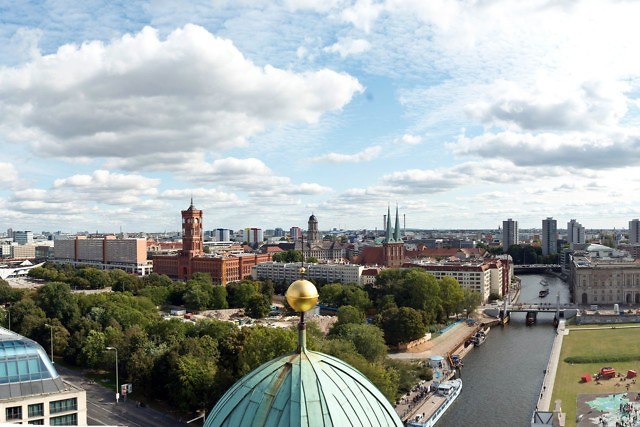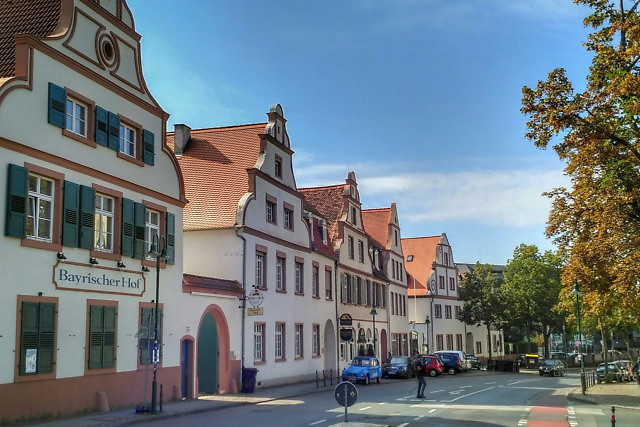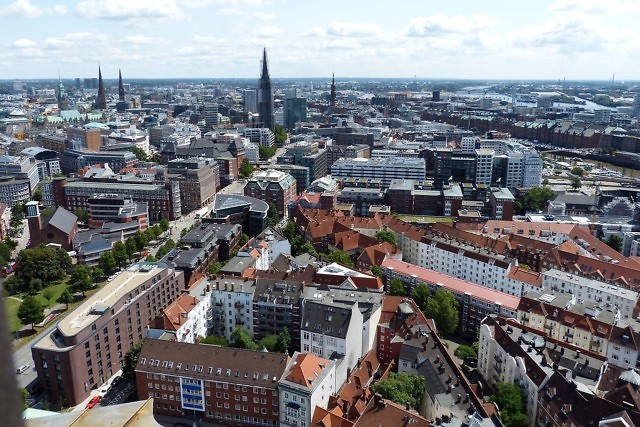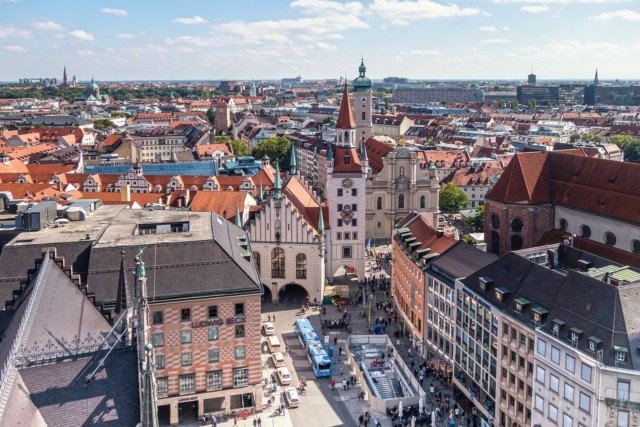The German diesel ban
Since February 2018, news outlets frequently mention the German diesel ban. This is because in that month, Germany’s highest court in Leipzig decided that German states and cities are permitted to ban vehicles with older and polluting diesel engines. In a few cities this diesel ban has been introduced already. On this page you can read everything you need to know.
Order the official German emissions sticker, now for only €15,95 including VAT and delivery costs.
Background of the diesel ban
When Germany’s emissions stickers were introduced in 2008, the green emissions sticker was meant for the least polluting vehicles at the time. Vehicles with a diesel engine had to meet the requirements of emission standard EURO 4 to be eligible for the green sticker. More than 10 years later, these same vehicles belong to the most polluting vehicles on the road. New vehicles with a diesel engine now must meet the strict requirements of emission standard EURO 6.

Many large German cities however, still suffer from considerable air pollution. This means that the green emissions sticker no longer suffices. Since a few years, German states and cities have therefore been trying to convince the federal government to introduce a blue emissions sticker. This would be a new emissions sticker for vehicles that meet emission standard EURO 6. By making this blue sticker compulsory within low-emission zones, older and polluting vehicles can be banned the same way vehicles not eligible for the green sticker are banned.
Because politicians move slowly, the decision to introduce this blue emissions sticker has not yet been taken. Several large German cities went to court about this. Eventually this resulted in a ruling by Germany’s highest court in Leipzig on 27 February 2018, that German cities are allowed to ban older and polluting vehicles. The court also ruled that the practical implementation should be decided by the government.
After this ruling, several German cities introduced a so called diesel ban. The exact rules differ per city and are explained below. The expectation is that as soon as the central government decides to introduce a blue emissions sticker, these diesel bans will be replaced by a nationwide regulation.
German diesel ban per city
At the moment of writing, Berlin, Darmstadt, Hamburg, München and Stuttgart have introduced a diesel ban. The term diesel ban is somewhat misleading, as not all vehicles with a diesel engine are banned. Usually only older and most polluting diesels are not allowed to enter the low-emission zone.
Diesel ban in Berlin
As of 1 November 2019, there are eight streets within the city center of Berlin where older vehicles with a diesel engine are banned. Only if your vehicle meets the very strict emission standard EURO 6, you may still drive through these streets. Because vehicles with a diesel engine that meets emission standard EURO 5 get the green emission sticker, this means that you can receive a fine even if you have an emissions sticker.

Nevertheless, for most foreign visitors this diesel ban does not have a large impact. The ban is only for through traffic. If your destination, such as a restaurant or store, is on one of these streets, you are still allowed to drive there. More information, including a map, can be found on our page about Berlin.
Diesel ban in Darmstadt
The diesel ban of Darmstadt was introduced on 1 June 2019. As in Hamburg, there are two streets in the city center with heavy air pollution. These are the Hügelstraße and the Heinrichstraße. Older vehicles with a diesel engine are not allowed to drive here. If you visit Darmstadt as a tourist, these two streets can easily be avoided.

Vehicles with a diesel engine that meet the requirements of emission standard EURO 5 or lower are not allowed to drive on the two streets mentioned above. This means that you can receive a fine even if your vehicle has the current green emissions sticker. Please look at our page about Darmstadt for a more detailed explanation.
Diesel ban in Hamburg
On 31 May 2018, Hamburg was the first German city to introduce a diesel ban. This is peculiar, because it is one of the few large German cities that does not have a low-emission zone. As in Darmstadt, there are two streets in the city center where vehicles with older diesel engines are not allowed to drive. These are the Max-Brauer-Allee and the Stresemannstraße. In the Stresemannstraße, only large trucks and buses are banned.

The diesel ban of Hamburg is aimed at all vehicles that do not meet emission standard EURO 6 or higher. Most passenger cars from after September 2014 and most trucks and buses from after September 2015 meet these requirements. For more about the situation in this city, including a map, please see our page about Hamburg.
Diesel ban in Munich
The diesel ban of Munich went into effect on 1 February 2023. Vehicles with a diesel engine that do not meet emission standard Euro 5 or higher, ar no longer allowed to drive within the low-emission zone of the city. The plan was to also ban diesels that do not meet Euro 6 later in 2023, but that plan was postponed in July because the air quality had improved already.

There are some exceptions to the diesel ban, but these are mostly aimed at local inhabitants and not at foreign tourists. Please have a look at our page about Munich for more information and a map of the low-emission zone.
Diesel ban in Stuttgart
In 2008, Stuttgart was one of the first German cities to introduce a low-emission zone. On 1 January 2019 a diesel ban was added for all vehicles that do not meet emission standard EURO 5 or higher. Unlike Darmstadt and Hamburg, where older diesels are banned from driving on a few specific streets, they are banned from driving anywhere within the low-emission zone of Stuttgart.

On 1 January 2020, diesels that meet emission standard EURO 5 were banned as well. Only vehicles with a diesel engine that meet emission standard EURO 6 or higher are now allowed to drive within the low-emission zone of Stuttgart. As in Hamburg, this means that you may receive a fine even if your vehicle has a green emissions sticker. For more information, please see our page about Stuttgart.
Future diesel bans
The cities below have indicated that they may introduce a diesel ban in the near future. If a diesel ban is introduced, we will do our best to update this page as soon as possible.
Police checks
Because the blue emissions sticker has not yet been introduced, it is difficult for the German police to find out which vehicles meet which emission standard. Usually, random checks are done where they halt a vehicle and ask the driver for the vehicle registration certificate. Especially older vehicles that generally are equipped with diesel engines are checked. Think of VW Transporters, large trucks and campervans.
The fine for ignoring the diesel ban varies per city. In Stuttgart you pay €100, the same as for not having the green sticker within the low-emission zone. In Hamburg the fine ranges from €25 to €75.
Order the official German emissions sticker, now for only €15,95 including VAT and delivery costs.
